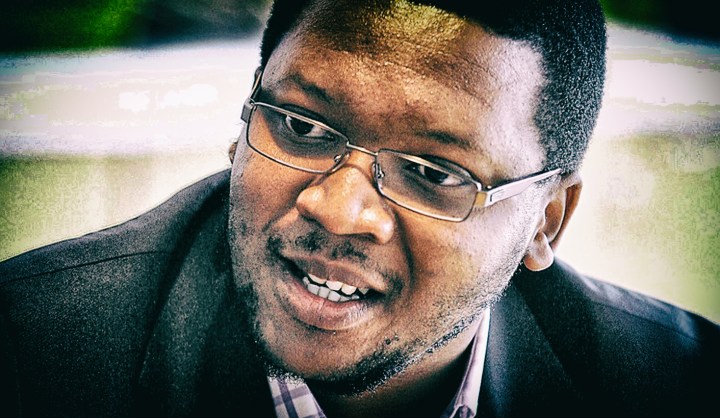South Africa
Letter to Editor: Georg should play the economics and not the economist

Since his appointment as adviser to Finance Minister Malusi Gigaba, Professor Chris Malikane’s views on economic policy have generated a great deal of debate and interest in the media. And, that’s the way it should be. Our economic problems are complex and the challenges are pressing - so the more debate we have the better. Questioning Malikane's academic credentials does little to further the debate. By KIM JURGENSEN.
Kim Jurgensen is Communications Manager, Faculty of Commerce, Law and Management, Wits University.
Most of the comment, support and criticism of Malikane’s views have focused on and challenged his views and ideas. This is the way it should be. Professor Chris Malikane has chosen to place his views on the economy in the public domain, and he will defend his views.
However, a small number of those that have intervened in the debate have challenged his academic credibility. One such intervention has been the rather peculiar piece by Co-Pierre Georg, published in the Daily Maverick on 04 May 2017 – “The Dangers of Listening to Bogus Economists”. As Professor Malikane is based in the Faculty of Commerce, Law and Management at Wits University, we feel it necessary to correct misconceptions about his standing as an Associate Professor in our University.
Georg’s piece is really about academic publishing in South Africa. Some of it is factually correct, (for example the Department of Higher Education and Training does pay the same subsidy for all research publications irrespective of quality), some of it is partially correct (for example, Deans do care a lot about financial matters), but we are also very concerned about the quality of publications in our universities, and some of it is vague and unsubstantiated (we have no idea where he gets the data for the conclusion that the academic journals that South African economists publish in reject only 40-50% of submissions).
Somewhat bizarrely, after taking us through his views on academic publishing, Georg feels it appropriate to end his article with a side-swipe at Malikane’s academic credibility. He concludes that, as an academic, Malikane is “not doing well”, and that as a researcher Malikane has “an abysmal track record for an Associate Professor”. On this matter, Georg is simply wrong.
Georg uses Scopus – an abstract and citation database of peer-reviewed academic work to reach his conclusion on Malikane. He makes three arguments – that Malikane has a poor research record (“abysmal” is the word Georg uses), that Malikane publishes in poor quality journals, and that Malikane has poor citation numbers.
Using Scopus, Georg correctly finds that Malikane has 12 Scopus articles and eight citations. Is this a basis for his conclusion that Malikane has an abysmal track record? Georg conveniently provides no benchmark – is 12 good or bad? Professor Jason Cohen, who is our Assistant Dean for Research, looked into this matter for the Faculty. Let’s compare Malikane to his peers at the University of Cape Town, where Georg is based. These UCT Associate Professors have a mean of 12 and a median of 13 Scopus publications. If we include those with no publications, the median is 10. So, at worst, Malikane is coming out in the middle of the pack at UCT.
Is Malikane publishing in poor journals? Georg says that Malikane has only three articles with a “fair standard of peer review”. We have no idea where Georg gets the number 3, but I can assure him that it is incorrect. Malikane has 8 ISI publications in the last five years (ISI publications are considered to be in the most highly ranked journals and are, in general, the top peer-reviewed journals). Among UCT Associate Professors, the median over the last five years is 2. So, compared to his peers, Malikane has a pretty good track record of publishing in the top peer-reviewed academic journals.
It is true that, based on Scopus, Malikane’s has a low number of citations (the number of times others quote his work). But one should be careful here – citations rates are a function of time. Most of Malikane’s publications are recent so his citations rates will increase. One cannot compare his citation rates against that of academics who are older scholars whose work has had more time to generate impact. Furthermore, academics must balance a strategy of chasing citations through mainstream publishing and collaboration with established researchers against a strategy of working with and developing junior scholars (something that Malikane does very well) in under-represented research communities. Thus Malikane’s citation count says nothing about his independence and leadership in research, or his contribution to the development of future African scholars. Citations simply do not measure all dimensions of impact.
There is simply no basis for Georg to reach the conclusion that Malikane has an “an abysmal record”. As has been pointed out, compared to his peers he had a good track record. He fully deserves his rank of Associate Professor and there is no basis whatsoever for Georg to attack his academic standing.
There are some other issues to think about as well. Academics must focus on more than just publishing in the best journals. Malikane does this. He has, for example, published in the Botswana Journal of Economics. This will do nothing for his Scopus rankings but it does a whole lot for African scholarship.
Malikane has chosen to place his views on economic policy in the public domain. His views and ideas on economic policy are controversial. He should be challenged and we should debate these matters. The debate should however focus on the policies and the ideas that underpin his views. Mischievous attacks on his academic standing are not “debate”. To use a sporting analogy – Georg should play the economics and not the economist. DM
Photo: Professor Chris Malikane (Photo by Netwerk24)


















 Become an Insider
Become an Insider